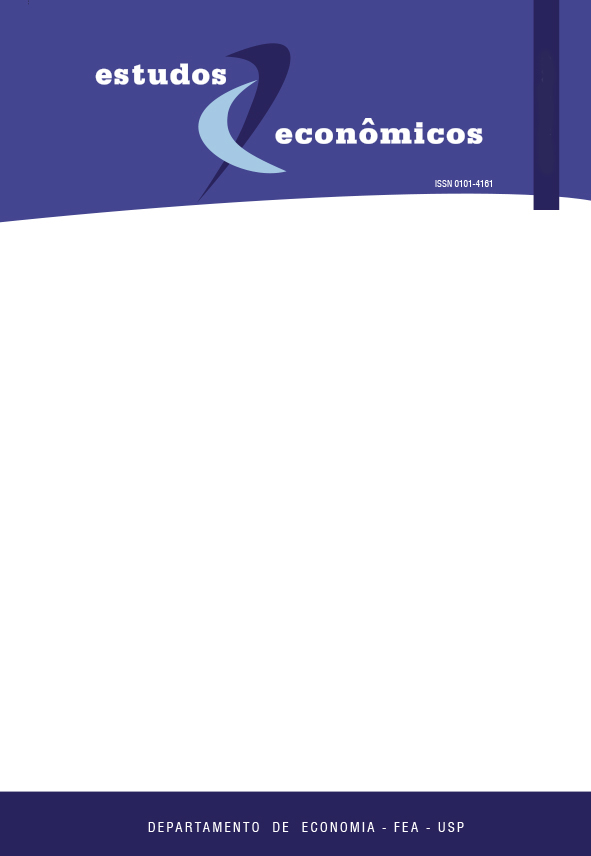The effects of early childhood education on literacy scores using data from a new Brazilian assessment tool
DOI:
https://doi.org/10.1590/S0101-41612012000100004Keywords:
early childhood education, literacy scores, Propensity Score MatchingAbstract
The aim of this study was to identify the effects of early childhood education (ECE) on literacy scores of 2nd grade students in elementary school. To do that, the Provinha Brasil was administered in Sertãozinho-SP, in conjunction with a socioeconomic questionnaire. Despite external validity problems, the evaluation of the effects of ECE in one municipality is advantageous, as we can estimate the effects of one kind of treatment. Other studies ignore this fact. Often, they estimate an average effect of various treatments effects (not just one), as they use data from different municipalities where ECE programs have different levels of quality. The OLS and Propensity Score Matching results show that students who started school at the ages of 5, 4, and 3 years had literacy scores between 12.22 and 19.54 points higher than those who began school at the age of 6 years or later.
Downloads
References
Albernaz, A.; Ferreira, F. H. G.; Franco, C. 2002. Qualidade e Eqüidade na Educação Fundamental Brasileiro. Pesquisa e PlanejamentoEconômico, v. 33 Nº 3.
Angrist, J., 1998. Estimating the labor market impact of voluntary military service using Social Security data on military applicants. Econometrica 66, 249–88.
Becker, G. 1964. Human Capital: a theoretical and empirical analysis, with special reference to education. New York: NBER/Columbia University Press.
Behrman, J.; Cheng, Y.; Todd; P. 2004. Evaluating Pre-school Programs when Length of Exposure to the Program Varies: A Nonparametric Approach.Review of Economics and Statistics.vol.86, n.1, p.108-32.
Berlinski, S., Galiani, S., Gertler, P. 2009. The effect of pre-primary education on primary school performance.Journal of Public Economics, Volume 93, Issues 1-2, February 2009, Pages 219-234.
Caliendo, M.; Kopeinig, S. 2005. Some practical guidance for the implementation of propensity score matching. Bonn, Germany: Institute for the Study of Labor (IZA), (IZA Discussion Papers, 1588)
Carnoy, M.; Loeb, S. 2002. Does external accountability affect student outcomes? A Cross-State Analysis.Educational Evaluation and Policy Analysis, 24(4), 305–331.
Coleman, J. S. et al. 1966. Equality of educational opportunity. Washington: Government Printing Office.
Cunha, F.; Heckman, J.; Lochner, L.; Masterov, D. 2005.Interpreting the Evidence on Life Cycle Skill Formation.NBER Working Paper 11331, Cambridge, MA.
Curi, A., Menezes-Filho, N. 2006. Os efeitos da pré-escola sobre os salários, a escolaridade e a proficiência escolar. Anais do XXXIV Encontro da ANPEC, Salvador, Bahia, p. 1-21.
Currie, J.; Thomas, D. 1995.Does Head Start Make a Difference? The American Economic Review. vol. 85, n. 3 (Jun., 1995), p. 341-364.
Currie, J. 2001.Early Childhood Education Programs.Journal of Economic Perspectives, vol.15, n.2, p.213-238.
Dehejia, R., and Sadek W. (2002).Propensity Score Matching Methods for Nonexperimental Causal Studies, National Bureau of Economics Research Working Paper Nº. 6829, forthcoming Review of Economics and Statistics.
Duflo, E.; Glennerster, R.; Kremer, M. 2006.Using Randomization in Development Economics Research: A Toolkit.MIT Department of Economics Working Paper Nº. 06-36.
Felicio, F.; Fernandes, R. 2005. O Efeito da Qualidade da Escola sobre o Desempenho Escolar: uma avaliação do ensino fundamental no Estado de São Paulo. In: ENCONTRO NACIONAL DE ECONOMIA, 33, 2005, Salvador.
Felício, F.; Vasconcellos, L. 2007. O Efeito da Educação Infantil sobre o desempenho escolar medido em exames padronizados. Anais do XXXV Encontro da ANPEC, Recife, Pernambuco, p. 1-22.
Downloads
Published
Issue
Section
License
Copyright (c) 2012 Fabiana de Felício, Rafael Terra, Ana Carolina Zoghbi

This work is licensed under a Creative Commons Attribution-NonCommercial 4.0 International License.
By submitting an article, the author authorizes its publication and attests that it has not been submitted to any other journal. The original article is considered final. Articles selected for publication are proofread for grammatical and orthographic errors. The journal does not pay rights for published articles. The Institute of Economic Research from the School of Economics, Business and Accounting of the University of São Paulo (Instituto de Pesquisas Econômicas da Faculdade de Economia, Administração e Contabilidade da Universidade de São Paulo) owns the journal's copyright.





 Atualizado em 14/08/2025
Atualizado em 14/08/2025